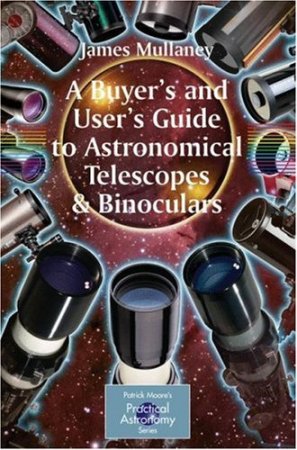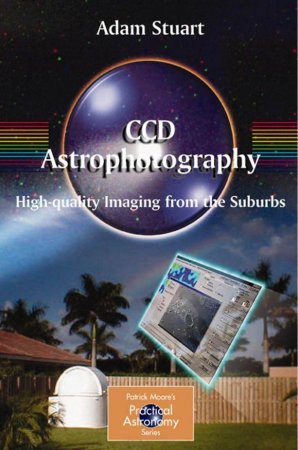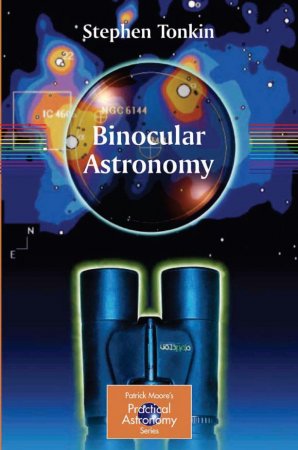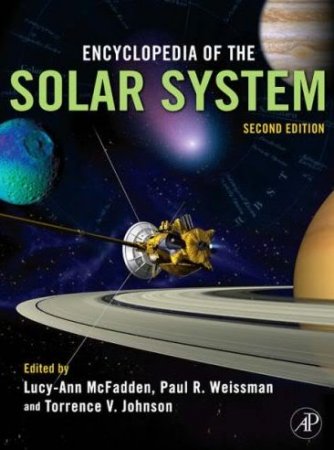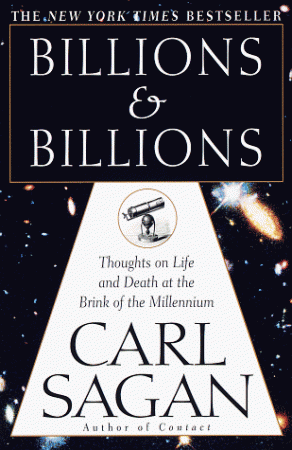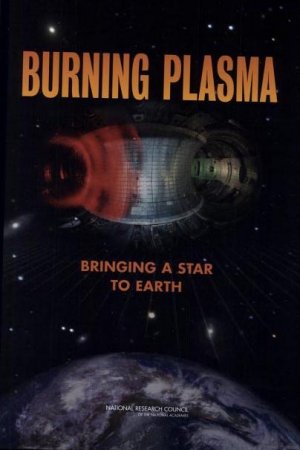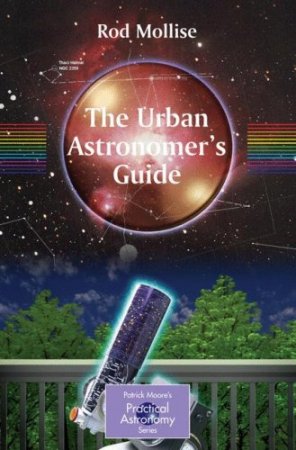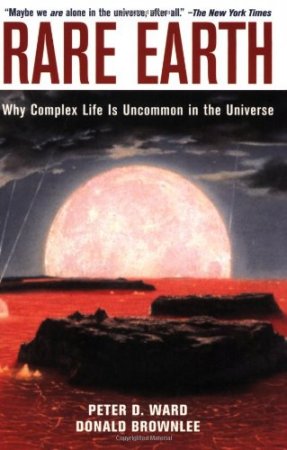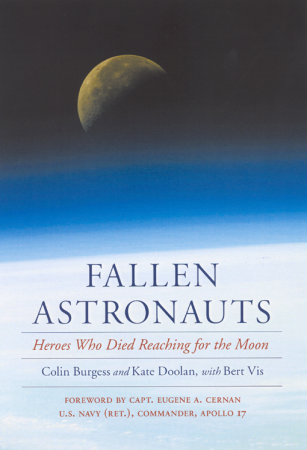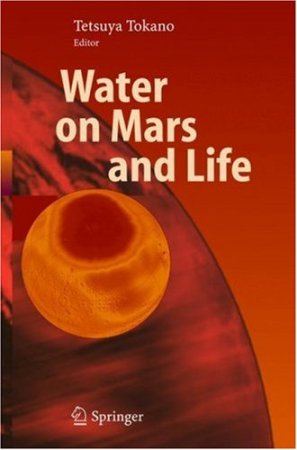НавигацияАрхив новостейСтатистика |
CCD Astrophotography: High-Quality Imaging from the SuburbsNot all amateur astronomers who live in a suburban location realize just how very effective a «chilled-chip' astronomical CCD-camera and software can be at cutting through seemingly impenetrable light-pollution. CCD Astrophotography from the Suburbs details one man's approach to the problem of getting high-quality astronomical images under light-polluted conditions. Binocular AstronomyThe advantages of using both eyes for astronomical observing are many and considerable, largely because of the way the human brain processes visual information. Binoculars – the usual kinds – are incredibly useful for wide-field observing, but "binocular astronomy" is much more than that, including binocular eyepieces that can be fitted to normal astronomical telescopes, and even giant binocular telescopes that are effectively two astronomical telescopes working in tandem. Encyclopedia of the Solar SystemLong before Galileo published his discoveries about Jupiter, lunar craters, and the Milky Way in the Starry Messenger in 1610, people were fascinated with the planets and stars around them. That interest continues today, and scientists are making new discoveries at an astounding rate. Ancient lake beds on Mars, robotic spacecraft missions, and new definitions of planets now dominate the news. How can you take it all in? Start with the new Encyclopedia of the Solar System, Second Edition. Billions and Billions: Thoughts on Life and Death at the Brink of the MillenniumThis is the last book written by renowned American astronomer and science popularizer Carl Sagan before his death in 1996.The book is a collection of essays Sagan wrote covering diverse topics like global warming, the population explosion, extraterrestrial life, morality, and the abortion debate. The last chapter is an account of his struggle with myelodysplasia, the disease which finally took his life in December 1996. Sagan's wife, Ann Druyan, wrote the epilogue of the book after his death. Burning Plasma: Bringing a Star to EarthSignificant advances have been made in fusion science, and a point has been reached when we need to decide if the United States is ready to begin a burning plasma experiment. A burning plasma in which at least 50 percent of the energy to drive the fusion reaction is generated internally is an essential step to reach the goal of fusion power generation. The Burning Plasma Assessment Committee was formed to provide advice on this decision. The committee concluded that there is high confidence in the readiness to proceed with the burning plasma step. The International Thermonuclear Experimental Reactor (ITER), with the United States as a significant partner, was the best choice. Once a commitment to ITER is made, fulfilling it should become the highest priority of the U.S. fusion research program. A funding trajectory is required that both captures the benefits of joining ITER and retains a strong scientific focus on the long-range goals of the program. Addition of the ITER project will require that the content, scope, and level of U.S. fusion activity be defined by program balancing through a priority-setting process initiated by the Office of Fusion Energy Science. The Urban Astronomer’s Guide: A Walking Tour of the Cosmos for City Sky WatchersMost amateur astronomers yearn to observe more frequently. Many of them, however, live in urban and highly developed suburban areas that are heavily light polluted. Due to this light pollution, they are under the impression that deep sky objects-nebulae, galaxies, star clusters-are either invisible or not worth viewing from home. This book describes the many objects that can be seen in a bright urban sky, and shows the city or suburban astronomer how to observe object after object, season after season. Rare Earth: Why Complex Life Is Uncommon in the Universe"Do you feel lucky? Well do ya?" asked Dirty Harry. Paleontologist Peter Ward and astronomer Donald Brownlee think all of us should feel lucky. Their rare Earth hypothesis predicts that while simple, microbial life will be very widespread in the universe, complex animal or plant life will be extremely rare. Ward and Brownlee admit that "It is very difficult to do statistics with an N of 1. But in our defense, we have staked out a position rarely articulated but increasingly accepted by many astrobiologists". Fallen Astronauts: Heroes Who Died Reaching for the MoonEight of America's early astronauts, selected to participate in the Mercury, Gemini and Apollo programs, died while employed by NASA. Three of the eight-Roger Chaffee, Gus Grissom and Ed White-are fairly well known, having died in a gruesome fire during a training exercise in the Apollo 1 command module on January 27, 1967. The other five are far less familiar. Four perished in jet crashes (Ted Freeman, Elliot See, Charlie Bassett and C.C. Williams) while one (Ed Givens) died in a car crash. Unfortunately, Burgess (Teacher in Space) and Doolan (coauthor, Mission to Planet Earth) tell their stories in turgid and repetitive prose, failing to dig beneath the surface and thus providing remarkably little insight into the men, their time or the agency for which they worked. Unlike virtually every other book dealing with the personalities of the astronauts, this one leads us to believe that all were single-minded saints, with no human foibles. Rounding out the book is a chapter written by Vis, a Dutch space analyst, detailing the lives and deaths of the eight Soviet cosmonauts who died between 1961 and 1971. This chapter is even weaker than the rest; little meaningful information is presented and there are factual conflicts with the American chapters. While the untimely deaths of good, talented men evoke pathos, these abbreviated biographies do not deepen understanding of them. Water on Mars and LifeGrowing evidence, based on observations from orbiters, landers and telescopes, indicates that Mars may still have numerous hidden water reservoirs. Moreover, from the point of view of habitability, Mars is a prime target for astrobiologists in search of extant or extinct microbial life because we know that life exists in earth's permafrost regions, such as parts of Siberia and the Antarctic, which are the closest terrestrial analogues to Mars. Water on Mars and Life surveys recent advances made in research into water on Mars together with its astrobiological implications. This volume addresses not only scientists working in the field but also nonspecialists and students in search of a high-level but accessible introduction to this exciting field of research. |
ПопулярноеКалендарь
ОпросОцените дизайн сайта
Немного рекламы |
||||||||||||||||||||||||||||||||||||||||||||||||||||||||
